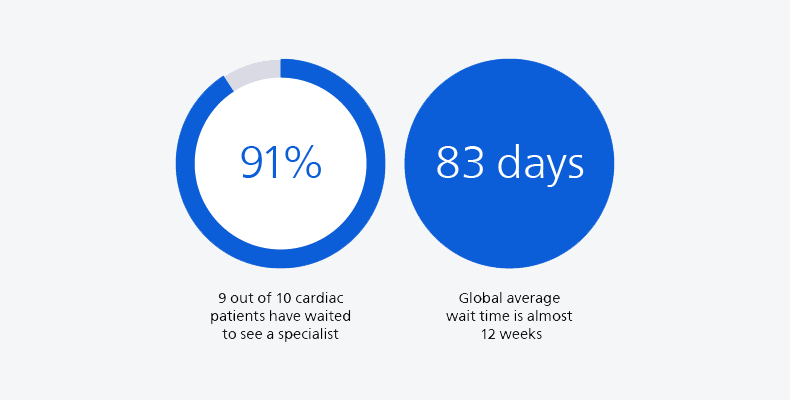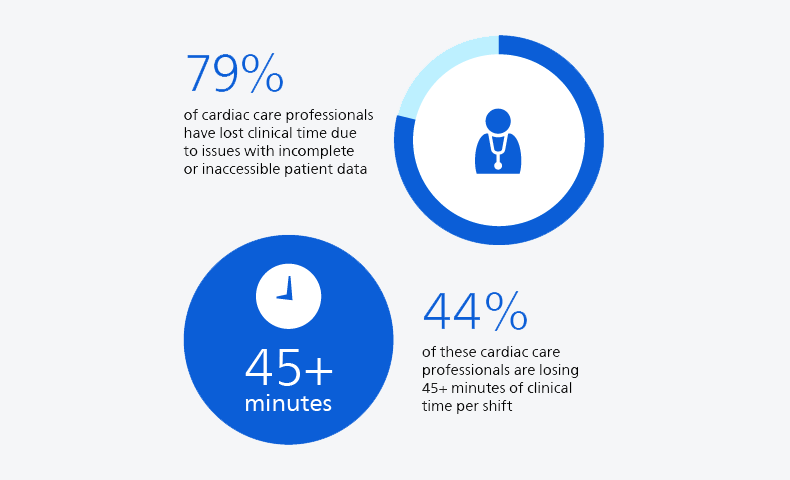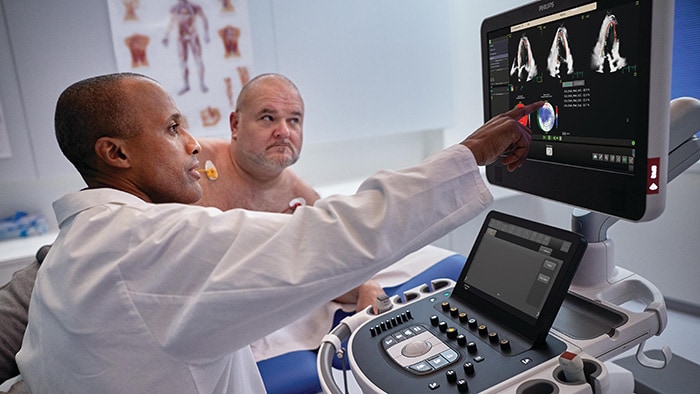Philips Future Health Index cardiology snapshot reveals trust gap in AI for care
New global findings highlight urgent needs—and promising opportunities—for AI to help cardiac teams reclaim time, improve outcomes, and strengthen patient trust
Aug 26, 2025 | 3 minute read
Amsterdam, the Netherlands – Royal Philips (NYSE: PHG, AEX: PHIA), a global leader in health technology, today unveiled new findings from its Future Health Index 2025: Cardiology Snapshot, revealing how cardiac care professionals and patients view the role of AI and digital technologies in transforming heart health. The report offers a timely and candid look at the pressing challenges faced by cardiology teams worldwide—and the growing potential of AI to alleviate them.

Cardiovascular disease affects more than 640 million people globally [1], placing enormous strain on health systems already struggling to keep pace. The latest Future Health Index data paints a clear picture: time is one of the most valuable—and scarce—resources in cardiac care.
Mounting delays, worsening outcomes for patients
Nine in ten cardiac patients globally report delays in seeing a specialist, with an average wait time of nearly 12 weeks. The cost of these delays is high: one in three patients say their condition worsened while waiting to see a doctor, resulting in hospitalization. At the same time, cardiac care professionals are also battling inefficiencies. Nearly 80% say they lose clinical time due to incomplete or inaccessible patient data—almost half of whom lose more than 45 minutes per shift as a result.

AI can help cardiology professionals reclaim time and restore focus on patients
Despite these systemic challenges, healthcare providers remain hopeful. The survey shows 91% of cardiac care professionals find joy and purpose in connecting with patients. To maintain that human connection amid rising demands, they are looking to technology for support. More than four in five providers believe AI can automate repetitive tasks, extend clinical capacity, and support earlier diagnoses. 79% say AI could even help reduce the burden of cardiovascular disease in the long run.
I believe that the future of healthcare depends on AI-enabled solutions that empower healthcare professionals and patients in ways that are secure, transparent, equitable, and responsible.
Bridging the trust gap with patients
While clinicians are optimistic, patients remain cautious. Only 56% of cardiac patients say they are optimistic that AI could improve healthcare. An area of key concern: that healthcare could become less personal. The survey shows that caregivers play a critical role in building this trust. Patients would feel more comfortable with AI if their doctors and nurses clearly explained its use and benefits in healthcare. On the professional side, trust hinges on clear guardrails: more than one in three cardiac care professionals called for greater clarity around legal liability and assurance that AI systems are monitored and transparent.

Recommendations for the path forward
The Future Health Index 2025: Cardiology Snapshot outlines five key actions to help unlock the full potential of AI in cardiac care. First, streamlining data access is essential to free up clinical time and reduce administrative burden, while automating routine tasks allows providers to spend more time focusing on patient care. Leveraging predictive analytics can support earlier interventions and improve outcomes, and bridging the trust gap by involving both cardiac professionals and patients in the deployment of AI is critical for adoption. Finally, ensuring transparency and oversight will be vital to building long-term confidence in AI systems and sustaining their impact across cardiac care.
Visit the Philips Future Health Index 2025 site to download the full report.
Sources [1] Global Heart & Circulatory Diseases Factsheet, The British Heart Foundation’s Global Heart & Circulatory Diseases Factsheet (January 2025)










